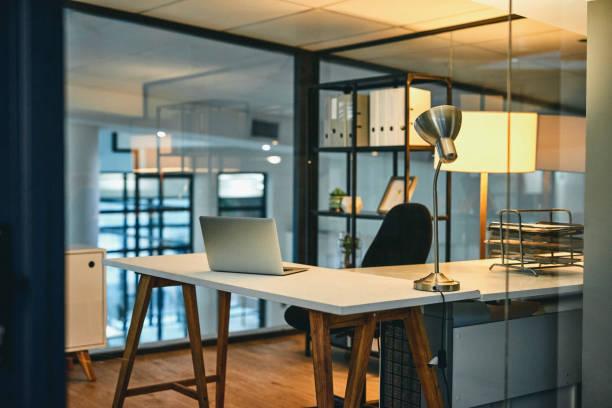Evolution of Desk Table Design
In today’s fast-paced world, where remote work and home offices are increasingly prevalent, the design of desk tables plays a crucial role in shaping our productivity, comfort, and overall work experience. The evolution of desk table design has gone beyond mere functionality; it now encompasses elements of ergonomics, sustainability, technology integration, and aesthetic appeal. This article explores the latest innovations in desk table design that cater to the diverse needs of modern users.
Ergonomics and Comfort
One of the primary focuses of contemporary desk table design is ergonomics, aiming to provide users with maximum comfort and reduce strain during long hours of work. Height-adjustable desks have gained immense popularity, allowing users to customize the height of their workspace according to their preferences, promoting better posture and reducing the risk of musculoskeletal issues. Advanced mechanisms powered by electric motors or manual adjustments offer seamless transitions between sitting and standing positions, promoting movement throughout the workday.
Moreover, ergonomic desk chairs with lumbar support and adjustable features complement the design of modern desk tables, ensuring optimal comfort and alignment for users. Integrated cable management systems help keep cords organized and out of the way, contributing to a clutter-free workspace conducive to productivity.
Sustainable Materials and Eco-Friendly Design
In response to growing environmental concerns, designers are increasingly incorporating sustainable materials and eco-friendly practices into desk table manufacturing. Bamboo, reclaimed wood, and recycled plastics are some of the materials being used to create environmentally responsible desk tables. These materials not only reduce the carbon footprint but also add a unique aesthetic charm to the workspace.
Furthermore, some companies are adopting sustainable production processes, such as minimizing waste generation, using non-toxic finishes, and implementing energy-efficient manufacturing techniques. By prioritizing sustainability, desk table designers are not only contributing to environmental conservation but also aligning with the values of eco-conscious consumers.
Integrated Technology and Connectivity
As technology continues to permeate every aspect of our lives, desk table design has evolved to accommodate the needs of the digital age. Integration of technology directly into desk tables has become a prominent trend, with features such as built-in wireless charging pads, USB ports, and cable-free connectivity options.
These innovations enable users to seamlessly power and connect their devices without the hassle of tangled cords or cluttered desk surfaces. Additionally, some desk tables come equipped with integrated LED lighting systems, allowing users to customize the ambiance of their workspace according to their preferences.
Moreover, smart desk tables equipped with sensors and connectivity capabilities can track user behavior, monitor sitting patterns, and even remind users to take breaks or adjust their posture, promoting health and wellness in the workplace.
Versatile and Modular Designs
Flexibility and adaptability are essential considerations in modern desk table design, catering to the diverse needs of users in various environments. Versatile and modular desk tables allow for easy reconfiguration and customization, enabling users to create dynamic workspaces tailored to their specific requirements.
Modular desk systems comprise interchangeable components that can be easily assembled, disassembled, or rearranged to accommodate changes in workspace layout or function. This flexibility not only maximizes space utilization but also fosters creativity and collaboration in shared work environments.
Furthermore, convertible desk tables that double as storage units, whiteboards, or presentation surfaces offer multifunctionality without compromising on style or efficiency. These innovative designs blur the boundaries between traditional desk tables and multifunctional furniture, catering to the evolving needs of modern workplaces.
Aesthetic Appeal and Personalization
In addition to functionality and performance, aesthetic appeal plays a significant role in the design of desk tables, reflecting the personal style and preferences of users. Designers are exploring a diverse range of styles, finishes, and colors to create desk tables that serve as focal points of inspiration and creativity in the workspace.
Minimalist designs with clean lines and sleek finishes are favored for their timeless appeal and versatility, complementing a wide range of interior aesthetics. On the other hand, bold and unconventional designs featuring geometric shapes, vibrant colors, and textured surfaces add a touch of personality and playfulness to the office workspace.
Furthermore, customizable desk tables that allow users to choose their preferred materials, finishes, and accessories empower individuals to create truly unique and personalized work environments that inspire productivity and innovation.
Conclusion
Innovations in desk table design continue to shape the way we work, providing users with ergonomic, sustainable, technologically advanced, and aesthetically pleasing solutions that enhance productivity and elevate the work experience. As the boundaries between work and home blur and remote work become the norm, the importance of thoughtful and innovative desk table design cannot be overstated. By integrating principles of ergonomics, sustainability, technology, versatility, and personalization, designers are creating workspace solutions that not only meet the functional needs of users but also inspire creativity, collaboration, and well-being in the modern workplace.
Apart from that if you want to know about “5 Additions to Include in Your Business” then please visit our “Industry” Category.







